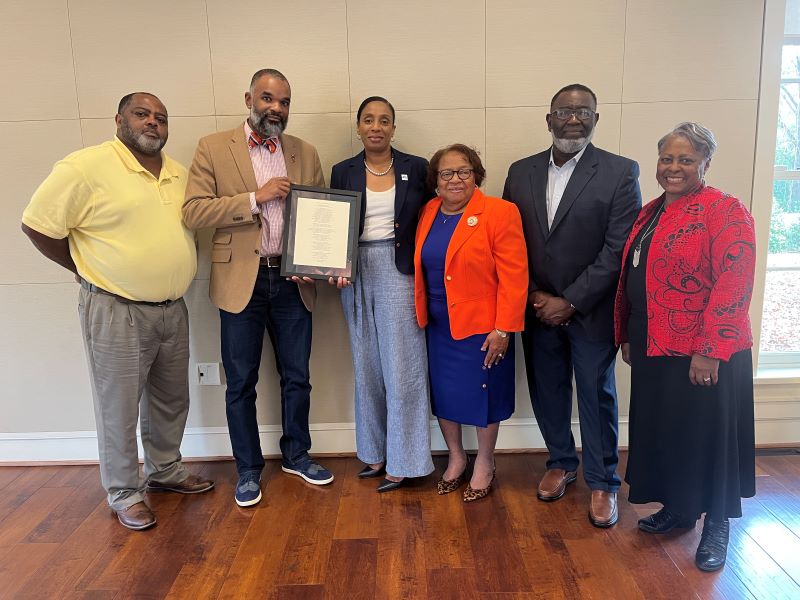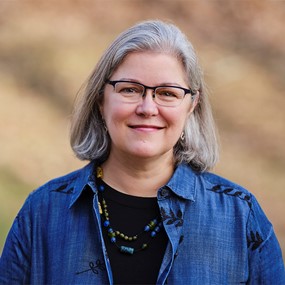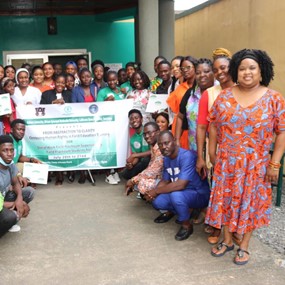Auburn Africana Studies director honors John Lewis family with poem

Auburn University Africana Studies Program Director Ernest Gibson received a special honor from the John R. Lewis Legacy Institute in December when he was presented with a framed poem the institute commissioned in celebration of a historical marker that was dedicated on the family’s land in Troy, Alabama.
John R. Lewis, the late Georgia congressman and civil rights leader, grew up on a farm in Troy with his parents and nine siblings. The farm, which has been in the Lewis family for generations, was designated with a historical marker in August.
At the ceremony, a recording of Gibson, an associate professor of English, reciting his poem “This Land” was played as the marker was unveiled to a crowd of more than 250 attendees.
The poem honors the history of the land and the Lewis family’s work to maintain it.
“Land is forever a site of memory. It’s a place where a people’s stories are not buried, but held,” Gibson said. “My hope is that we recognize that this land is sacred and that it holds a story and a family. This is the family that it holds, and there’s so much richness in the love, tears and laughter they shared. If there’s ever a moment where things are forgotten, the land will be there to remind them.”
Henry “Grant” Lewis, one of the “Big 12”—John Lewis, his siblings and parents—said the poem reminded him of how his family struggled to obtain and keep the land.
“When we talk about the land, I knew how much my parents took pride in ownership,” Lewis said. “My parents used to tell us: whatever we do, hold on to the land. Because that was the one thing that they cherished. They were strong in faith, so they knew that the land was a blessing and it would be a blessing to future generations of the family.”
On Dec. 6, the John R. Lewis Legacy Institute partnered with the Caroline Marshall Draughon Center for the Arts and Humanities to surprise Gibson with a framed copy of the poem.
“I was already honored by the invitation, just knowing I had this monumental and sacred task of trying to capture or do justice to what is clearly this amazing family from this amazing place that oftentimes doesn’t get the attention that it needs,” Gibson said. “But meeting them, breaking bread with them and having two of the ‘Big 12’ here to affirm my work, my spirit, my effort, means even more because it means I’ve done something well.”
The John R. Lewis Legacy Institute promotes diversity, supports civil rights education and engages in community service projects that foster the legacy of the late Congressman Lewis.
Institute board members, who also are related to Lewis, said the poem allowed them to relive their childhood through the act of words and reminded them of the role the entire family played in changing history. The Legacy Institute is currently pursuing a trademark on the poem to host and protect the work.
“I want the poem to serve as a reminder of who we are, not just as a family, but as a people,” said Kimberly Whitaker, director of operations for the Lewis Legacy Institute and first cousin of John Lewis. “Our history, ownership of land, where we came from, what we fought through, what we’re continuing to fight through—if we don’t have these reminders, we’ll forget. I trust it will spark a sense of pride, a sense of honor and a sense of courage to tap into who you really are.”
For more information about the John R. Lewis Legacy Institute, visit here.
Tags: English Faculty Community, Outreach and Engagement Arts and Culture






